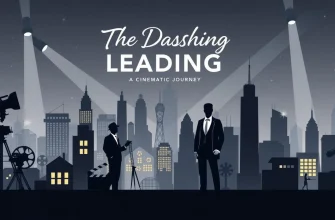This curated collection of films delves into the lives, struggles, and triumphs of Protestant characters, offering a unique perspective on faith, history, and personal conviction. These movies not only entertain but also educate viewers about the profound impact of Protestantism on society and individual lives, making them valuable for anyone interested in religious history or seeking inspiration through cinematic storytelling.

The Robe (1953)
Description: This epic film tells the story of a Roman tribune who converts to Christianity after witnessing the crucifixion of Jesus, reflecting early Christian and Protestant themes.
Fact: It was the first film to be released in CinemaScope, a widescreen process.
 Watch Now
Watch Now 
A Man for All Seasons (1966)
Description: This film portrays Sir Thomas More's resistance to Henry VIII's separation from the Catholic Church, highlighting the religious and political turmoil of the time.
Fact: Paul Scofield won an Academy Award for Best Actor for his portrayal of Thomas More.
 Watch Now
Watch Now 
Cromwell (1970)
Description: This historical drama focuses on Oliver Cromwell, a Puritan leader during the English Civil War, whose actions led to the temporary establishment of a Commonwealth in England.
Fact: The film was one of the most expensive British films ever made at the time of its release.
 Watch Now
Watch Now 
The Mission (1986)
Description: Set in the 18th century, this film explores the conflict between Jesuit missionaries and the Portuguese and Spanish governments, reflecting the broader religious and political tensions of the era.
Fact: The film was shot on location in Colombia, with many scenes filmed in the Iguazu Falls.
 Watch Now
Watch Now 
Elizabeth (1998)
Description: The film covers Queen Elizabeth I's early reign, including her establishment of the Church of England, which was a pivotal moment in Protestant history.
Fact: The film was nominated for seven Academy Awards, winning for Best Makeup.
 Watch Now
Watch Now 
Luther (2003)
Description: This biographical drama focuses on Martin Luther, the seminal figure of the Protestant Reformation, capturing his journey from a monk to a reformer who challenged the Catholic Church's practices.
Fact: The film was shot in various locations in Germany, including the actual Wartburg Castle where Luther translated the New Testament into German.
 Watch Now
Watch Now 
The Other Boleyn Girl (2008)
Description: While not exclusively about Protestantism, this film includes the historical context of Henry VIII's break from the Catholic Church to marry Anne Boleyn, leading to the English Reformation.
Fact: The film was shot at various historical locations in England, including Hever Castle, which was the childhood home of Anne Boleyn.
 Watch Now
Watch Now 
The King's Speech (2010)
Description: While primarily about King George VI's struggle with his stammer, the film subtly touches on the religious context of the time, including the Church of England's role.
Fact: The film won four Academy Awards, including Best Picture.
 Watch Now
Watch Now 
God's Not Dead (2014)
Description: A contemporary film where a college student challenges his professor's atheism, sparking a debate about faith, which resonates with Protestant themes of personal conviction and public expression of faith.
Fact: The film was inspired by real-life events and has spawned several sequels.
 Watch Now
Watch Now 
Amazing Grace (2006)
Description: The story of William Wilberforce, a key figure in the abolition of the slave trade in the British Empire, whose faith played a significant role in his political and moral convictions.
Fact: Ioan Gruffudd, who played Wilberforce, learned to play the violin for the film, as Wilberforce was known to be musically inclined.
 30 Days Free
30 Days Free 








